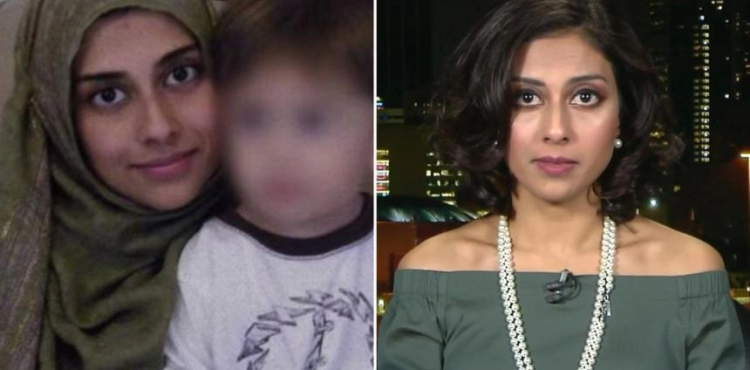Britain´s Tanya Joya, who defines herself as a "former Islamic jihadist", is working to "reprogram" extremist militants with the aim of reintegrating them into their communities.
"My goal is to feel remorse and train them to be good citizens after they are out of prison to regain their place in society," she said in an interview with AFP in Washington, where she presented her project to prevent violence and extremism.
Tanya Goya was born in 1984 in London to a Bangladeshi family and faced racism and integration difficulties. At the age of 17, extremist ideas were adopted after the September 11, 2001, attacks and the then-al Qaeda leader Osama bin Laden called for global jihad.
In 2004, she married an American Muslim named John Georgias and took the title Yahya Bahroumi. And is calling for the establishment of an Islamic state with three children as soldiers.
But in 2013 her husband took her "against her will" to the northwest of Syria to join the jihadists. She fled to the US authorities and was rescued three weeks later and returned to the United States.
After returning to her husband´s Texas state, she abandoned Islam, changed her lifestyle, divorced and remarried.
Meanwhile, her ex-husband joined the organization of the Islamic state, which soon took control of vast areas of Iraq and Syria. He took over the radical organization in English and said he had become the "top US official" in the organization.
He was killed in 2017 in the battle of the fields in northern Syria.
With the collapse of his "succession" of the Islamic state, there was concern in Western countries about the return of foreign fighters.
"I realized it was important to keep them away from extremism and to rehabilitate them," Tania said.
"They must be reprogrammed and given hope in the political process," she said.
She added that she should also explain to them "the psychological factors and the means ... that led them to the extremism and rejection that they suffered as they grew up in Europe or America, the cultural conflict and the crises they experienced."
"If they are made very logical, they will accept it as I did," she said.
It supports the return of the captured combatants to their countries of origin for trial. This is what the United States calls for, but European countries, including France, prefer to be tried in Iraq.
She is also fighting for the return of Shamima Begum, who joined the Islamic State Organization in 2015 when she was 15, and wants to return to London. But her lack of remorse for what she did was a shock to British public opinion and the government dropped her British citizenship.
The Kurds now hold about 12,000 foreign fighters from 40 countries in camps in their areas of control in northeastern Syria, including 4,000 women and 8,000 children of jihadists.
Tania said Western countries "are responsible for these people and can not leave them in the Middle East in the hands of the Kurds, and the violence they are subjected to in these camps will increase their adherence to their extremist ideology."
She is part of the Prevention of Violent Extremism program run by the US-based Clarion Project to "prevent young people from making mistakes that I and my ex-husband have committed."
The program includes "communication models" and "counter messages" aimed at young people "to avoid falling into the clutches of religious and ideological extremism," according to the national coordinator of the program, Shirin al-Qudsi.
"It ranges from extremist gangs, ideologues and neo-Nazi and anti-fascist groups to Islamic extremism," al-Qudsi said.
"No one is born a violent extremist, it is made and manipulated (to be)," said the president of the Canadian society, Muslims Against the Future.
"These ideas must therefore be prevented from moving to young people," she said.
She pointed out that the method of recruitment of advocates of white supremacy and Islamists "one" and is based on the integration of young people with "fragile personality" in the "group".
Shirin al-Qudsi is similar to the two ideologies of "fire-feeding each other," a resource like the one in New Zealand in March 2019 when an Australian extremist killed 51 worshipers in two mosques.












